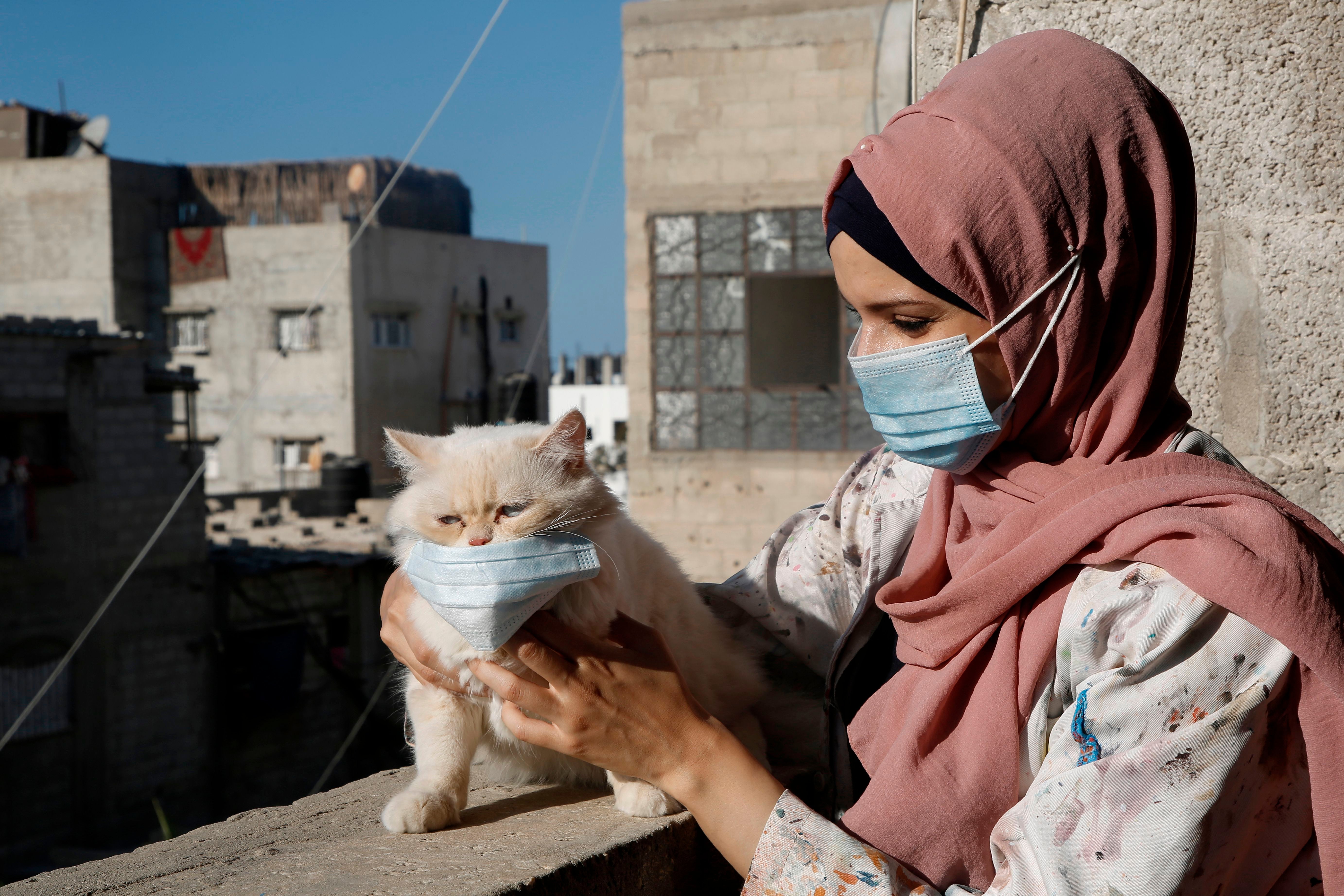Scientists identify first case of cat infecting human with Covid
Findings came about by accident after cat sneezed on vet at university

Scientists have identified the first apparent case of a human catching Covid from a cat.
A new study documented evidence that a vet in Thailand contracted the virus from an infected pet cat last year.
Earlier research has shown cats shed infectious virus particles and can infect other felines, but this is first documented case of suspected cat-to-human transmission.
The study was written by scientists at Thailand’s Prince of Songkla University and outlined how the discovery came about by accident.
In August 2021, a father and son who had tested positive for Covid were taken by ambulance to an isolation ward at the university hospital. For reasons that are unclear, the pair brought their 10-year old cat with them.
When the men were admitted to the hospital, the cat was sent to a veterinary hospital for an examination. While being swabbed, the cat sneezed in the face of a veterinary surgeon, who was wearing a mask and gloves but no eye protection.
Days later, the veterinarian developed symptoms and subsequently tested positive for Covid, but none of her close contacts appeared to contract the infection.
Genomic sequencing confirmed that the cat and all three people were infected with an identical version of the virus, which was not widespread in the local population at the time.
“The identical Sars-CoV-2 genome sequences obtained from patient A and the sequences derived from the cat and its 2 owners, together with the temporal overlapping of the animal and human infections, indicated that their infections were epidemiologically related,” the authors of the paper wrote.
“Cats are known to be susceptible to Sars-CoV-2 infection … Because infected cats have relatively short incubation and contagious periods, this cat probably had acquired its Sars-CoV-2 infection no longer than a week before possibly transmitting the disease to patient A.
“In summary, we have provided evidence that cats can transmit the Sars-CoV-2 infection to humans. However, the incidence of this transmission method is relatively uncommon.”
The paper was published in the Emerging Infectious Diseases journal.
Dr Scott Weese, an infectious diseases veterinarian at the University of Guelph in Ontario, said the research makes a strong case for cat-to-human transmission.
Join our commenting forum
Join thought-provoking conversations, follow other Independent readers and see their replies
Comments
Bookmark popover
Removed from bookmarks